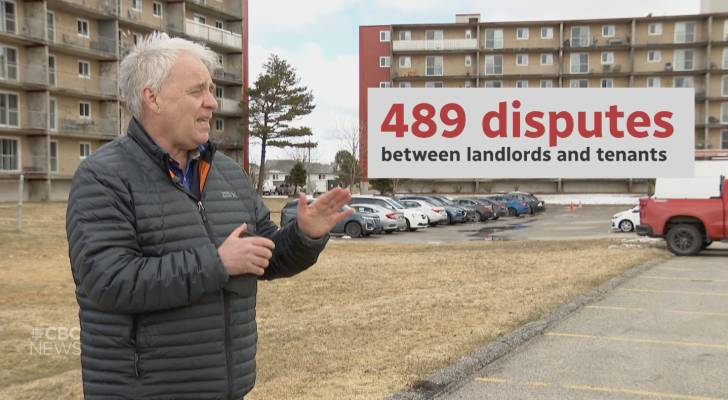
Physicist Haoyu Qi and his wife moved from Moncton to Toronto over the winter for work. But before he could retrieve the $2,000 security deposit he had paid on their New Brunswick apartment, he was told his former landlord was making a $500 claim for cleaning and damage costs.
Qi disputed the charge and filed a claim through New Brunswick’s Residential Tenancies Tribunal — a step many tenants don’t realize is available to them. Weeks later, the tribunal ruled in his favour, awarding him a refund of $1,732. That amount reflects the full deposit minus $268 the tribunal determined was a reasonable deduction.
“I feel like it’s very difficult for tenants to get a fair outcome unless you push really hard,” Qi told CBC News. “Even then, the process is slow and confusing.”
His experience is far from unique. Tenant advocates say many renters don’t understand their rights when it comes to security deposits, or how to recover them. And in New Brunswick, where the government holds all rental deposits in trust (a practice unique in Canada), the system can be both opaque and slow-moving.
System criticized as slow and stacked against renters
Nichola Taylor, chair of the New Brunswick branch of housing rights group ACORN, criticized New Brunswick’s system in the past, stating, "You would think if they have all that money stored that money should be going back towards housing to help tenants and to decrease the crisis of affordable housing that we’re currently in," she said to CityNews.
Under provincial law, landlords can require a security deposit of up to one month’s rent. These deposits must be remitted to the Residential Tenancies Tribunal within 15 days; failure to do so constitutes an offence . Tenants must apply to Service New Brunswick to retrieve their deposits upon moving out. Landlords have seven days to file a claim against the deposit for damages or unpaid rent. If a dispute arises, it proceeds to a tribunal.
Taylor highlighted the challenges in this process, noting it took her over two months to recover her deposit after moving apartments in Fredericton. She emphasized that the system is particularly burdensome for seniors, newcomers and those on fixed incomes.
Know your rights: What New Brunswick tenants should understand
- Landlords cannot charge additional deposits for pets: In New Brunswick, landlords are legally prohibited from demanding extra deposits for pets, no matter how large or unusual the animal might be. While some provinces allow pet deposits or monthly pet rent, New Brunswick law caps the security deposit at the equivalent of one month’s rent, and that includes all contingencies, pets included. Tenants often feel pressured to pay more to accommodate pets, especially in tight rental markets, but legally they cannot be forced to. If a landlord insists, tenants can report the issue to the Residential Tenancies Tribunal.
- Requiring "key money" or additional fees for keys is illegal: “Key money” — a term for illegal payments landlords request upfront, such as non-refundable cash to secure a unit or additional fees for access to keys — is not allowed in New Brunswick. Any such demand beyond the security deposit is considered unlawful. Despite this, some landlords may attempt to exploit new or vulnerable tenants unfamiliar with provincial regulations. If a tenant is told they must pay anything beyond their agreed rent and legal deposit to get access to the unit, they should know that this violates the Residential Tenancies Act and can be challenged.
- Tenants are entitled to a copy of their lease and a safe, livable home: New Brunswick tenants must be provided with a written lease agreement that outlines the terms of their rental, including rent amount, due dates and responsibilities of both parties. If a landlord refuses to provide this, they are in violation of tenancy laws. Moreover, tenants have a right to live in a home that is safe, clean and in good repair. This includes basic necessities such as working plumbing and heating, secure doors and windows, and a mold- and pest-free environment. Landlords are required to make necessary repairs in a timely manner. If they don’t, tenants can file a formal complaint and seek resolution through the Residential Tenancies Tribunal.
Understanding these rights can help tenants navigate the rental landscape and ensure they are treated fairly.
Sources
1. CBC News: New Brunswick landlord drops security deposit claim after false photo accusation (April 14, 2025)
2. CityNews: New Brunswick holding onto $41 million in security deposits from tenants (July 3, 2023)
This article provides information only and should not be construed as advice. It is provided without warranty of any kind.